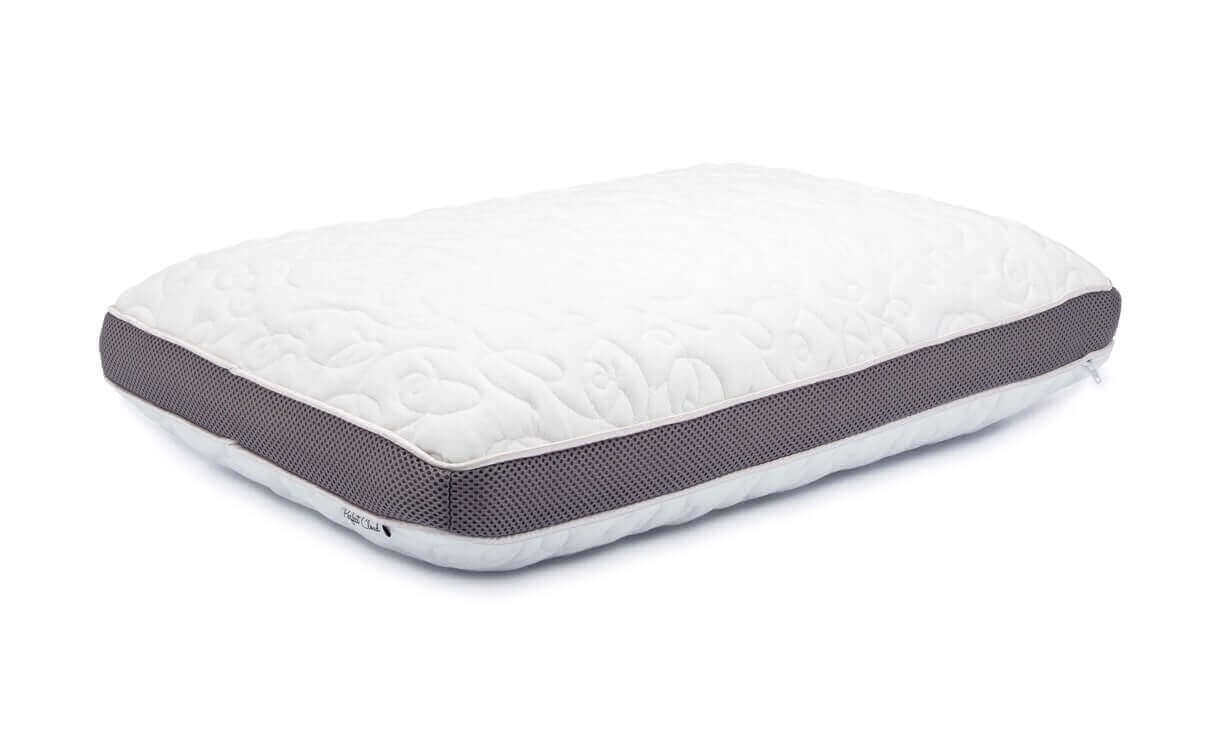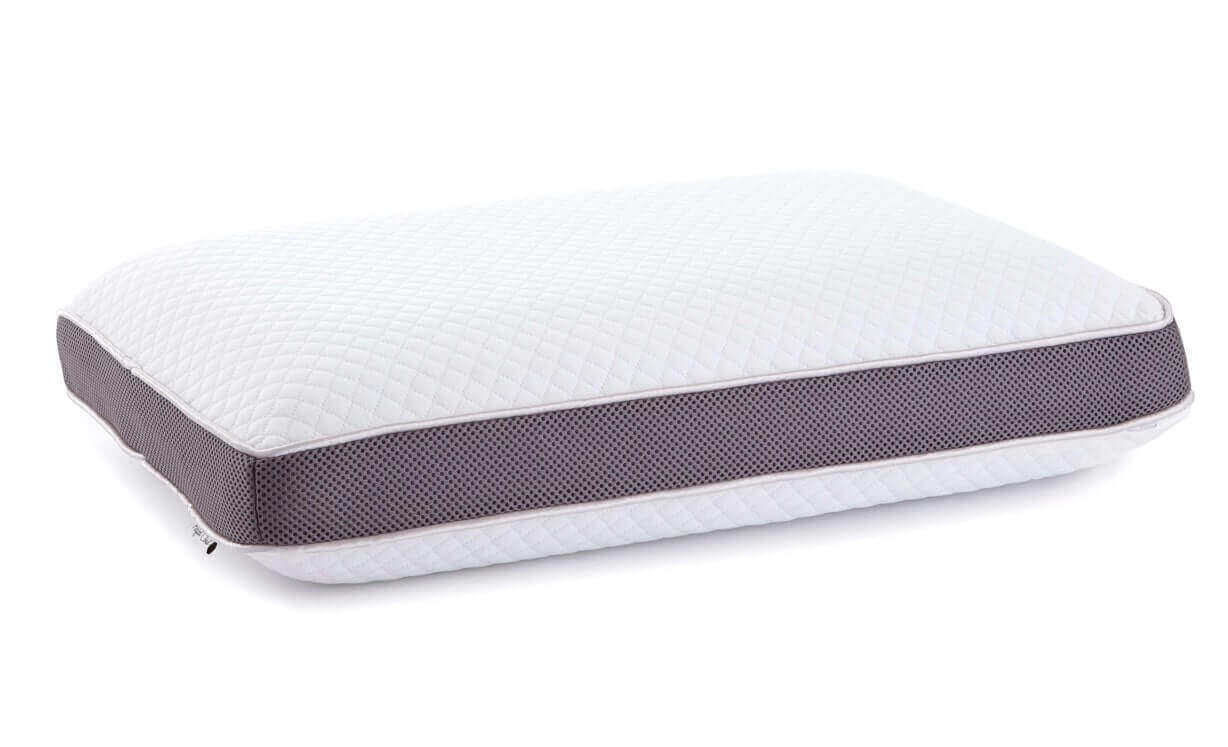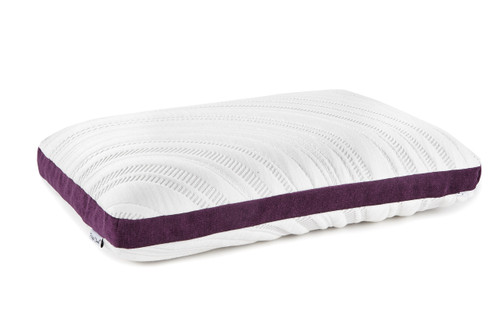How Often Should You Replace Your Pillow?
Posted by Brenton on 20th Feb 2020
When was the last time you replaced your pillow? If you’re like most people, you don’t know the answer. You probably hold onto your existing pillow until it physically deteriorates, or until an attractive sale or opportunity makes it convenient to buy a new one.
However, for the sake of your sleep quality and the sake of your health, it’s a good idea to replace your pillow on a regular basis. The question is, how often should you be replacing it?
Why Replace a Pillow?
First, let’s talk about why it’s important to replace your pillow on a regular basis.
Your pillow serves an important role in your sleep. Your spine is naturally curved, meaning if you lay completely flat, with nothing to support your head, then your head, neck, and spine will all face additional strain. For some people, this lack of support makes it much harder to fall asleep and stay asleep. For others, it’s possible to sleep adequately—but they wake up in the morning with a sore neck or back.
For a pillow to do its job, it needs to remain in good condition. But over time, it can fail in several key ways:
- Flattening. Most pillows are made from a material that’s designed to be firm enough to support your head, but soft and flexible enough that it’s comfortable. This soft flexibility will gradually warp, molding to the shape and weight of your head. In other words, eventually, your pillow will become flat, and when your pillow is flat, it won’t be able to support your head and neck as much as it should.
- Inconsistency. Depending on the type of pillow you have, it may also develop inconsistencies over time. You likely spend most nights in the same position, with your head and neck applying wear and tear to the same areas of the pillow. Eventually, you’re going to create lumps, and the pillow won’t be as even as it used to be. This is problematic, and a sign the pillow should be replaced.
- Hygiene. Hopefully, you change your bedsheets on a regular basis, including your pillow covers. That’s because when you sleep, you sweat and shed skin cells, and millions of microorganisms embed themselves and develop in your bedding. However, even if you change your sheets every night, eventually your pillow itself will start to accumulate these materials. Over time, it can become unhygienic, stimulating your allergies, making you less comfortable, and in some cases, making you more prone to certain illnesses.
You may also consider replacing a pillow if your current pillow isn’t providing adequate support. Perhaps you bought a cheap pillow out of convenience or desperation, and you’re interested in upgrading to something higher quality. Perhaps you’ve been experimenting with a new sleeping position, and your current pillow isn’t optimized for that position. In any case, buying a new pillow can greatly improve your sleeping habits and overall comfort.
How Often Should You Replace a Pillow?
Now to the question at hand. How often should the average consumer replace their pillow?
This is a difficult question to answer, since there are so many variables to take into consideration. If we’re considering an absolutely average person with average sleep habits and an average pillow, a replacement every year or two should be sufficient. However, it’s important to keep these other variables in mind:
- The quality of your pillow. There are pillows available at every price range. You can pick one up for a few bucks at your local supermarket or spend hundreds of dollars on a top-of-the-line model. In general, you get what you pay for. Cheaper pillows tend to be made of inferior materials, with less structural integrity and less propensity to last. If you invest in a higher-quality pillow, it could end up lasting several years before needing replacement.
- Your sleeping position. You’ll also need to consider your sleeping position, though this is a minor consideration. If you sleep face-down, you may be more likely to drool or contribute other facial residue to your pillow, accelerating its accumulation of unhygienic material. People who sleep in the same rigid position every night may also wear out their pillow faster.
- The role of the pillow. You also need to consider how you’re using the pillow. For example, if you fold it and put it between your legs, it may wear out faster than simply using it as a way to support your head and neck.
- Hours of usage. Do you only use your bed and pillow when you sleep? Or do you use it to prop up your body as you watch TV or browse the internet? Though it may seem obvious, the more you use your pillow, the faster it’s going to wear out.
- Your hygiene habits. How often do you change your pillow casings? If you swap them out and wash them on a frequent basis, your pillow won’t accumulate debris as quickly. It’s also important to consider any habits that might accelerate this accumulation, like sweating profusely or drooling during the night.
- Your sleep sensitivity. How hard is it for you to get to sleep? If you’re a light sleeper or if you suffer from insomnia, even a slight change in your pillow’s supportiveness could disrupt your ability to get to sleep. Accordingly, you may need to replace your pillow more often to keep getting sufficient sleep.
- Your back and neck soreness. Back and neck soreness when you wake up are hallmarks of a pillow that isn’t doing its job. If you consistently feel sore when you wake up and there’s no other explanation, it’s probably a sign you need to replace your pillow ASAP.
If you’re interested in getting a new pillow, you’ve come to the right place. At Perfect Cloud, we have a wide selection of high-quality pillows that can help you get a better night’s sleep—with a 3-year warranty so you can rest assured your pillow’s performance will stay consistent. Shop for your next pillow today!











